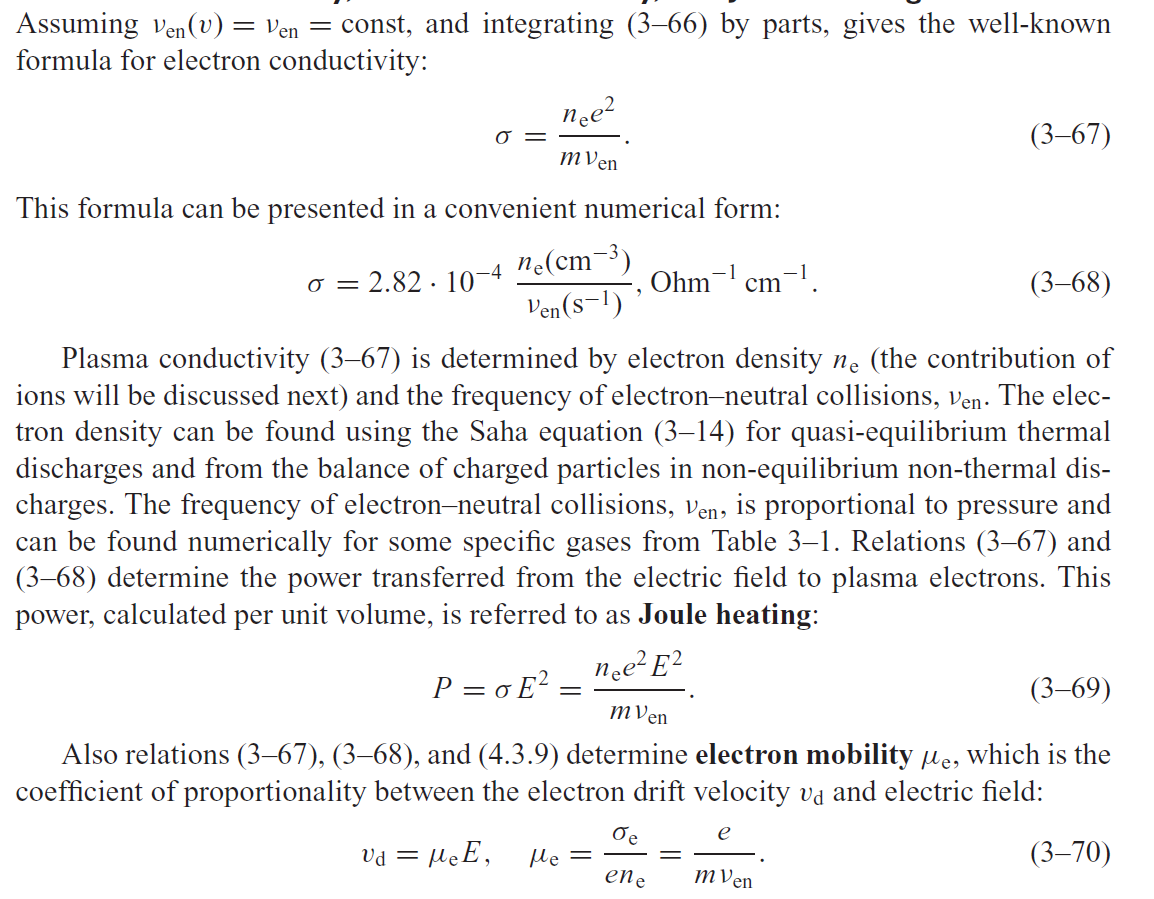Answered step by step
Verified Expert Solution
Question
1 Approved Answer
Using the equation (3.68), calculate plasma conductivity at electron number density ne= 1016cm3, and electron-neutral collision frequency 1010sec1, which is typical for thermal plasmas. Compare


Step by Step Solution
There are 3 Steps involved in it
Step: 1

Get Instant Access to Expert-Tailored Solutions
See step-by-step solutions with expert insights and AI powered tools for academic success
Step: 2

Step: 3

Ace Your Homework with AI
Get the answers you need in no time with our AI-driven, step-by-step assistance
Get Started


